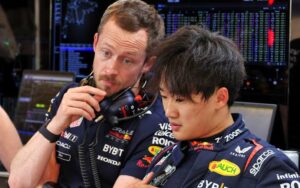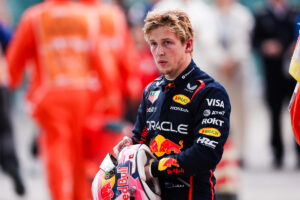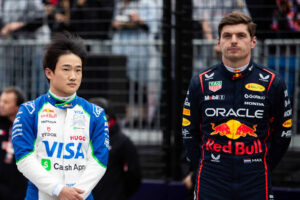Just in:Mercedes handed Hamilton blame as champion given NEW…..read more

Mercedes handed Hamilton blame as champion given NEW…..read more
In recent months, much has been said about Lewis Hamilton’s performances in Formula 1, with growing debate over whether the seven-time world champion is past his peak. Despite this, Mercedes has reaffirmed its belief in Hamilton’s ability, as evidenced by the new contract they have handed him for the upcoming seasons. However, the team has also subtly placed some of the responsibility for their recent struggles on Hamilton himself, suggesting that the driver’s performances are closely tied to the team’s success or lack thereof.
Hamilton, who has long been regarded as one of the greatest drivers in F1 history, has seen a decline in results in recent years, particularly when compared to his dominance in the previous decade. After joining Mercedes in 2013, Hamilton was instrumental in securing the team’s dominance in the sport, winning six of the last seven World Drivers’ Championships up until 2020. However, 2021 and 2022 saw a noticeable shift in the competitive landscape, with Red Bull emerging as a more dominant force and Mercedes struggling to keep up.
In particular, the 2022 season was a challenging year for Hamilton, who failed to win a single race for the first time in his career. Many pointed to the car’s design, particularly its “porpoising” issues, as a major factor in the team’s underperformance. However, there were also whispers about Hamilton’s ability to adapt to the new regulations and changes in the sport, fueling speculation that the driver may be reaching the twilight of his career.
As 2023 unfolded, Mercedes continued to face difficulties in closing the performance gap with Red Bull, who have been untouchable with their combination of driver Max Verstappen and a highly competitive car. Despite this, Hamilton remained one of the top drivers in the field, securing podium finishes and showing flashes of his former brilliance. Yet, the frustration was evident, with Hamilton himself expressing disappointment over the lack of progress from Mercedes.
In light of these challenges, Mercedes recently extended Hamilton’s contract for multiple more seasons, reaffirming their commitment to the 39-year-old driver. The contract extension is seen as a sign of trust from Mercedes in Hamilton’s ability to continue performing at a high level, despite the team’s ongoing issues with the car’s development.
However, in making this decision, Mercedes has also placed a certain level of responsibility on Hamilton for their recent struggles. While the team acknowledged the difficulties they’ve faced with car development and performance, there has been an undercurrent of responsibility aimed at Hamilton, suggesting that his feedback and input into the development process are just as crucial as the technical aspects of the car itself.
Toto Wolff, Mercedes’ team principal, has repeatedly emphasized the importance of collaboration between the team and the driver, with the understanding that the performance of the car and the driver are interdependent. In this context, the responsibility for Mercedes’ position in the pecking order is shared between both the engineers and Hamilton himself. In past seasons, Hamilton’s skill has often been credited with helping Mercedes extract more from the car than seemed possible, but the current situation requires even more from the driver in terms of leadership, adaptability, and development feedback.
This partnership will be critical moving forward, as Mercedes aims to close the gap to Red Bull. Hamilton’s experience, leadership, and insight into car development are seen as essential assets in this pursuit. However, the team will also need to ensure that they continue to evolve their car to give Hamilton the tools he needs to compete at the highest level.
As much as Mercedes has stood by Hamilton, the team’s decision to renew his contract also highlights the pressure that exists within F1, where performance is paramount. Hamilton’s future in F1, at least with Mercedes, will depend not only on his ability to continue delivering strong performances on the track but also on how well he can contribute to the team’s development and adapt to the changing demands of the sport.
Ultimately, while Hamilton remains one of the most talented and decorated drivers in Formula 1 history, the new contract suggests that Mercedes believes in his continued potential, but also acknowledges that the pressure to perform will remain, and that their future success will rely heavily on both the team’s engineering and Hamilton’s own driving and feedback.







